We use cookies to ensure you get the best browsing experience. By continued use, you agree to our privacy policy and accept our use of such cookies. For further information, click FIND OUT MORE.
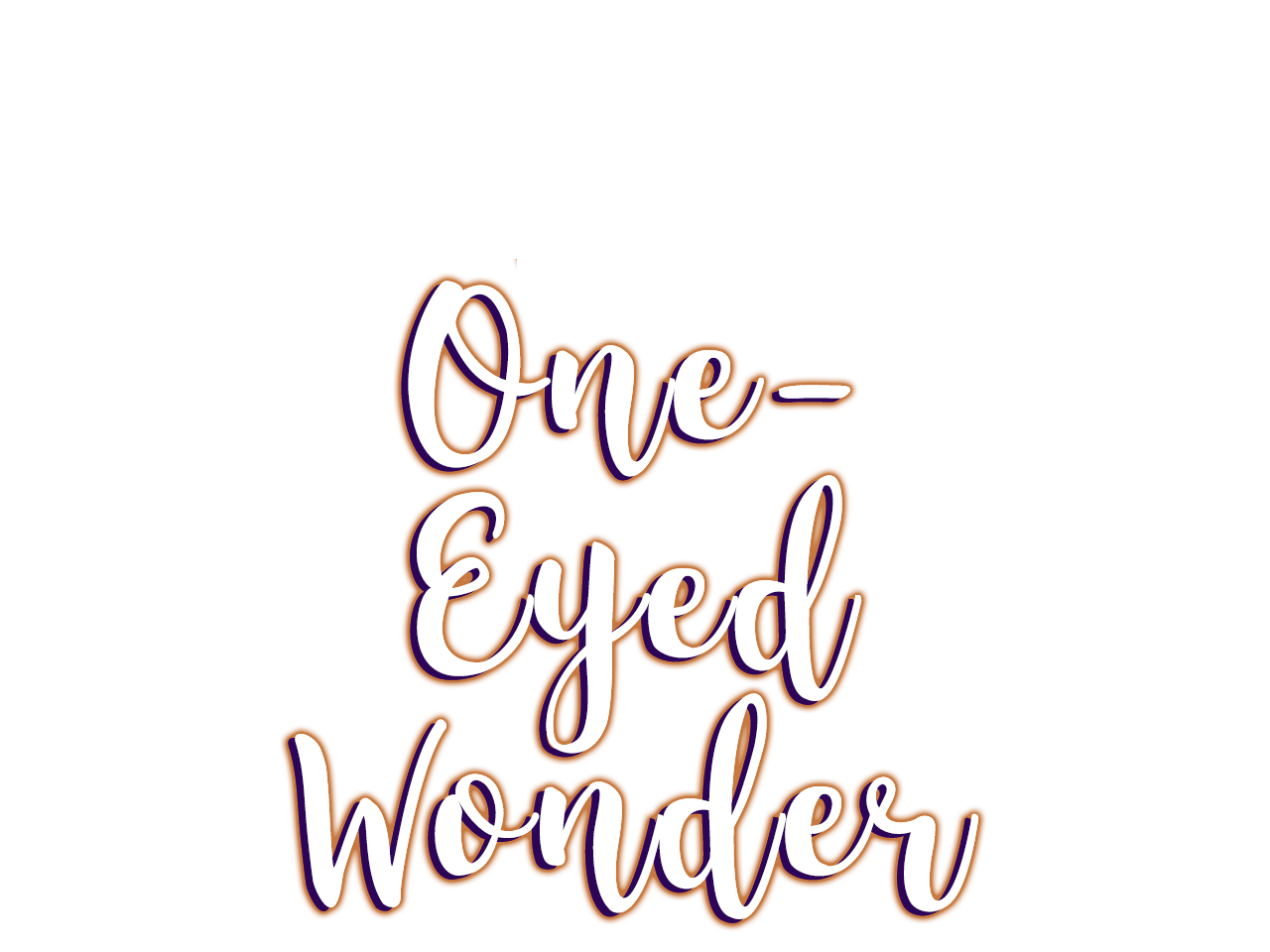
Magic Mark demonstrates his card tricks.
“This year is gonna be good.”
Mark Beltran makes the declaration with confidence, a quality that is only just coming back to him, three years after the most traumatic event of his life.
The One-Eyed Wonder, that’s what he calls himself now. Magic Mark lives to entertain. He does a sleight of hand trick without missing a beat, eager to pull a smile or a laugh from whoever is close enough to watch.
“I’m a magician. Put me in front of people, and I will entertain them,” he says.
On a humid afternoon in late May, he insists on doing trick after trick for GMA News Online. He couldn’t help himself.
“Pick a card,” he would say, or “Say stop,” as he shuffles the deck, mischievously tugging me along to his whims. On one of these card tricks, he has me hold a card of my choice between two hands — a three of clubs, pressed between the palms. When I check what I held, it had turned into the queen of diamonds.
I tried to remind myself that it was just a trick, but my mind is boggled. How was he able to pull one on me? That card was right between my fingers.
As if to prove it wasn’t just luck, he starts to do another trick. He has me pick a card and hold it between my thumb and index finger. I didn’t even see him move, and I certainly didn’t feel the card switch from between my fingers. But switch it did. I was holding an entirely different card, and he plucked my original card from the air.
A thorough check — and I just had to check — of the deck of cards shows it was really just a deck of cards. A new set, he informs me, and that was why sometimes he’d accidentally drop a card or fail to catch one.
Or perhaps it’s because catching a card is particularly difficult for someone who does not have binocular vision.
Mark settles on a couch on the rooftop of his parents’ house in Ayala Alabang, where he stays whenever he’s in the country. As the sun starts to sink and take with it its light, Mark’s mood turns somber as he recalls two events when his whole life changed.
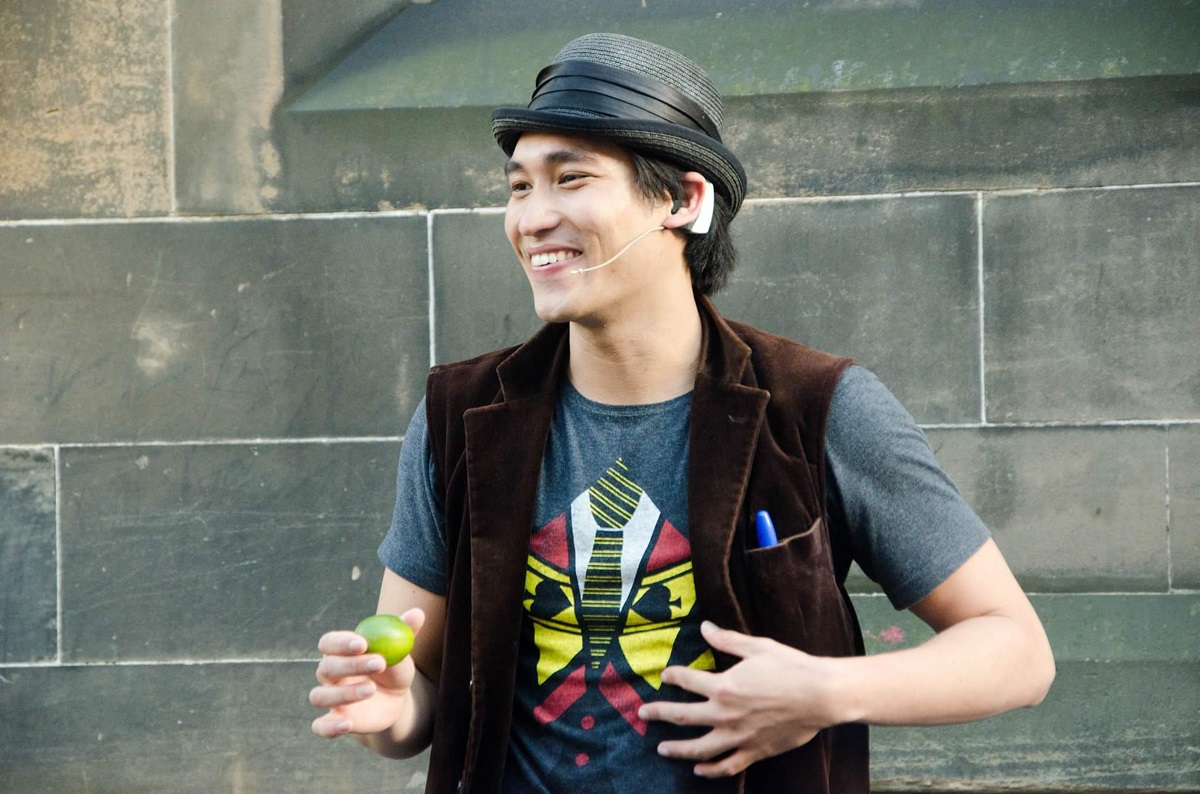
Magic Mark during a performance at Edinburgh Festival Fringe in 2016. Mark Beltran
The first event happened eight years ago. After graduating from Ateneo de Manila University, he had moved to Australia, where he was broke and trying to make a living.
One might say Mark already had everything going for him. He graduated from one of the most prestigious universities in the Philippines, and his family came from money. His family had briefly moved to Canada when he was younger, securing themselves a dual citizenship — it was this status that made Australia so accessible to him.
But his head was filled of fantasies of a life of adventure, where he can travel wherever and whenever he wants.
"My dream was to see the world, different parts of it. Exploration, adventure. My favorite thing was a really good culture shock," he said.
But he had limited money in his pocket, and he was not having much success figuring things out.
One day, he watched as a contortionist squeezed herself into a tiny box in a street in Sydney. The crowd grew amazed when she succeeded. He couldn’t help but notice the number of people that stopped to watch the show, and the money they gave her when it was over.
This is street performing, also known as busking, the contortionist told him when he approached her.
“She changed my life,” Mark recalls.
He immediately decided he wanted to try busking too. But what to do? “I know a little bit of magic,” he thought to himself, thinking back to when he was a lonely 11-year-old practicing those tricks.
The next day, he went straight to the same spot, set up a table with a sign reading “Broke Magician,” and did whatever magic tricks he could recall. What had once been a fascinating hobby began to turn into a means to an end.
That first day, he made 30 dollars before he got kicked out for lack of a city permit. He dusted himself off and kept trying, and pushing, and learning for the next few years.
He only had a little money that his parents gave him, and that disappeared like, well, magic.
“I was poor, I was really poor. Busking was the answer to my problems,” Mark said.
This was easier said than done. Mark admits that he “wasn’t good at all,” and that he “didn’t know what he was doing.”
“In busking, there’s three things you have to do...you have to gather the crowd, you have to make them stay, and then you have to make them pay. That’s what I had to learn,” he says.
At first his mother was supportive of him going off on his own, but after it became clear to her that street performing was going to be the career of his choice, a rift formed between them. He was on his own.
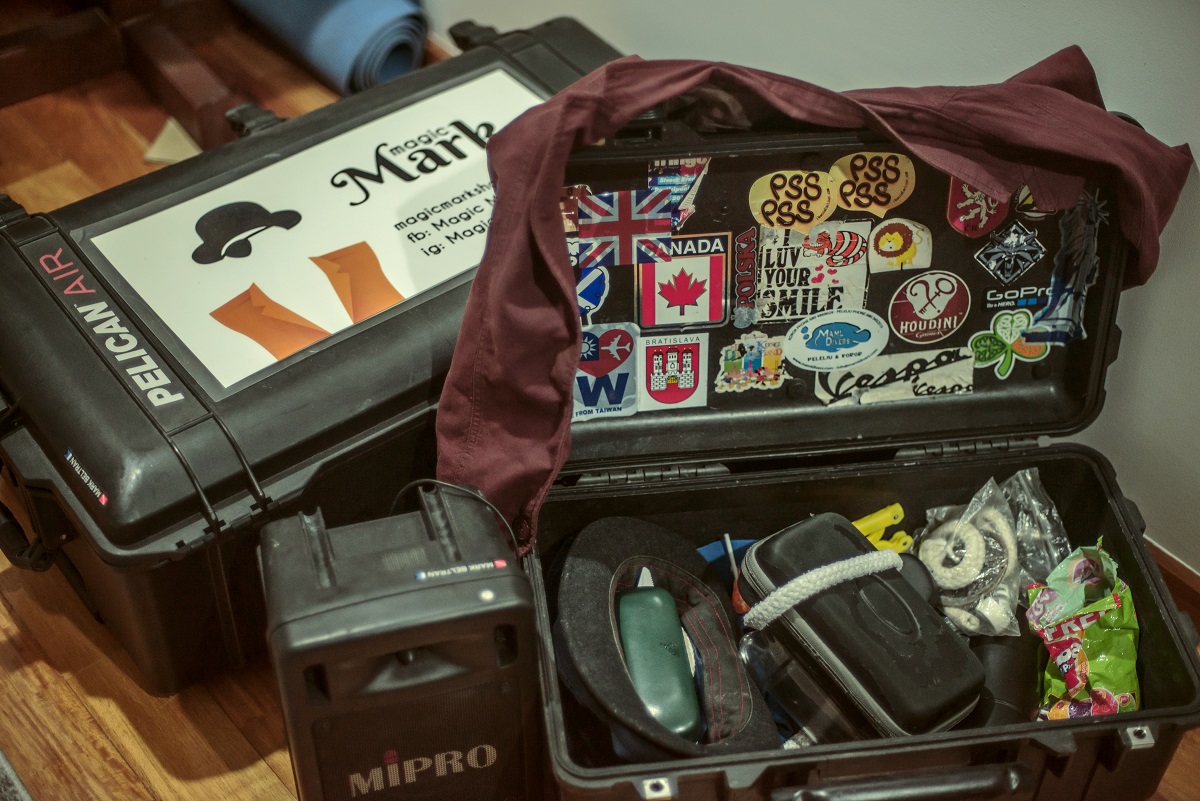
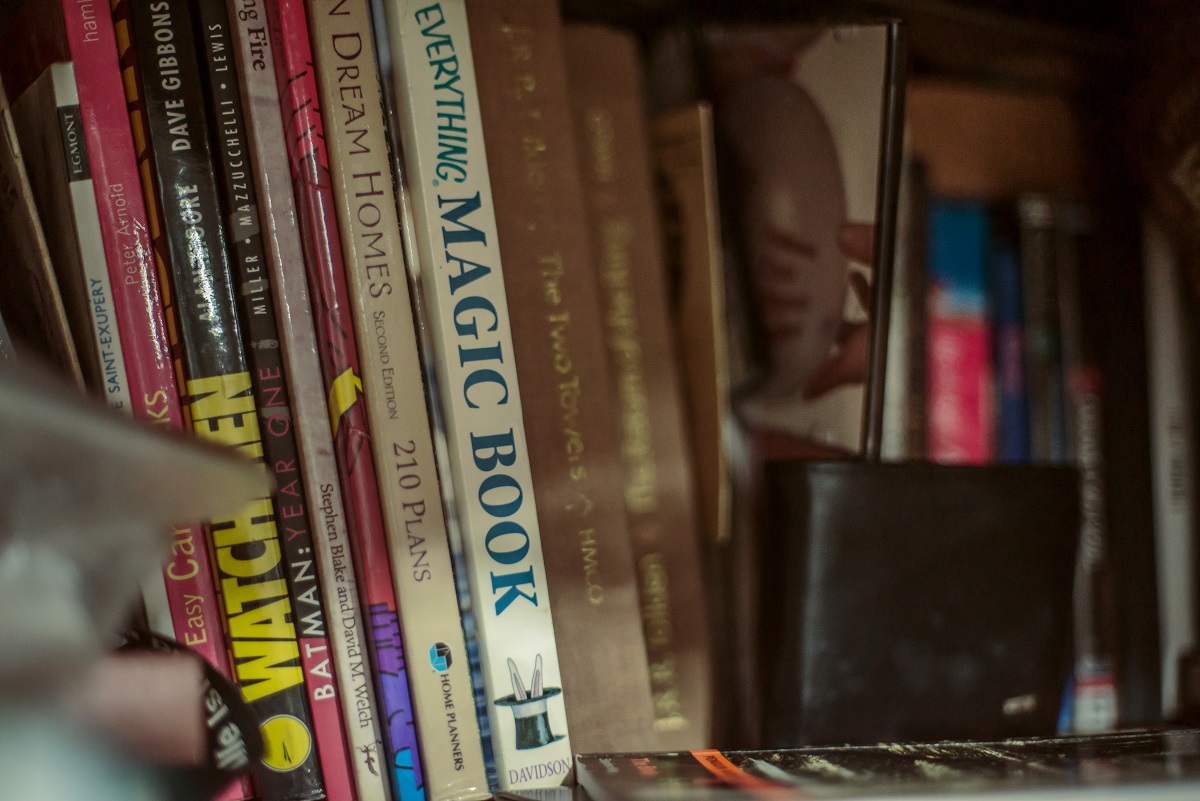
Must-haves for a magician — 1: Props for Magic Mark; 2: Books of magic. Jessica Bartolome
He reached a détente with his mother in 2012, when he decided to follow his then-girlfriend to Canada. Mark told his mother he wanted to pursue a master’s degree. Pleased, his mother gave him money for tuition.
Except his higher education ended up in the form of a master’s class in street magic, a week-long workshop in Las Vegas that cost $450. He burned through the money his mother gave him for the entrance fee, the flight, and his accommodations.
Needless to say, his mother was furious.
“She was mad at me...she didn’t like the work I was doing,” he says.
This is part of the reason he only ever stays two months at a time at most in the Philippines.
Despite the strained relationship between him and his mother, Mark didn’t once think about stopping. He knows full well that “it was a strange choice of career, not just in the Philippines but everywhere in the world.”
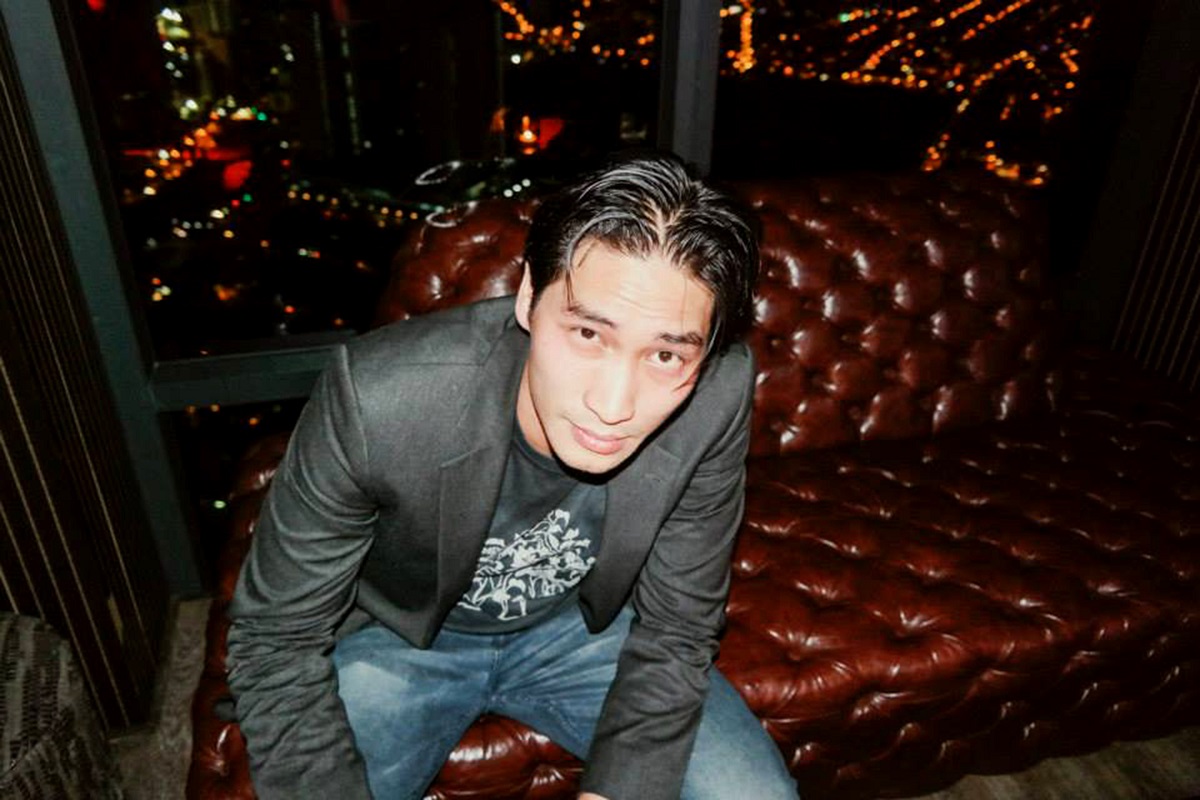
Magic Mark would perform anywhere, even in bars. Mark Beltran
His breakthrough came hand in hand with the moment of his dreams: the Edinburgh Festival Fringe, the largest arts festival in the world held for three weeks every August in Scotland.
Since his mind was opened to street performing, he had been eyeing the festival, which annually features thousands of performers and shows.
“And I did it. I went there. My mind was blown,” he says of his first trip to the festival in 2013. He was wide-eyed and amazed. There was no need to struggle to keep passersby interested — people paid to be there and so they stayed and watched.
There, he met the people who would become his best friends. He was inspired by other performers who let him hang around them and learn from them. Watching the shows made him rethink what was possible.
“I said to myself that I would go there every August until I died.”
Attending the festival served as rocket fuel for his dreams, and his world would further break open.
“On the first Euro tour in 2013, I started in London. Flew to Edinburgh, [took the] bus and train around Italy...Rome, Naples, Florence, Venice. Hitchhiked, passed through Slovenia and Slovakia and on to Vienna. Bus to Prague, [then flew back] to Manila,” he says.
His grit and hard work had paid off — Mark achieved all his dreams and then some. He grew more and more obsessed with street performing and magic, two types of art that for him were intertwined. He traveled around the globe performing magic tricks and pulling smiles from passersby as easy as he pulled cards out of thin air.
But then there was the less glamorous side of things: hunkering down in awful hostels, getting stranded in the middle of nowhere with no money, and relying on tips from strangers to survive.
It was inevitable that the whirlwind, nomadic lifestyle would get old. He couldn’t hold a relationship, he rarely traveled with friends, and his family ties were frosty. He admits that loneliness was his greatest enemy.
“From then on I just did it over and over again. Three years, four years, and I got slightly burnt out every year,” he says.
With all his dreams in reach, life would throw him another curveball. This one hit him straight in the face, sending him to a hospital in Ireland.

It started with a simple inconvenience. His amplifier, which he uses to project his voice during street performances, was stolen during one of his shows in Dublin.
After he had packed up, he got a call from a friend who told him, impossibly, that they found his amplifier in the streets. It had been held hostage by a group of thugs. There was urgency in the call that Mark couldn’t comprehend, but he went to the restaurant where his friend was anyway.
There, the gang had beaten up his friend who had made a grab for the amplifier. Still, they were successful in getting it back, and they trudged home.
“I thought it was over, so we decided to walk home. I was five minutes away from home when two guys started following us. One guy came from behind, snuck up and sucker-punched me with a bottle to my face,” he says.
“The hardest part was when I was in the ambulance and they were doing that eye test thing, you know in the movies? ‘How many fingers am I holding up?’ They covered one eye, it was OK. They covered this eye and I said, ‘I can’t see anything, I can’t see anything.’”
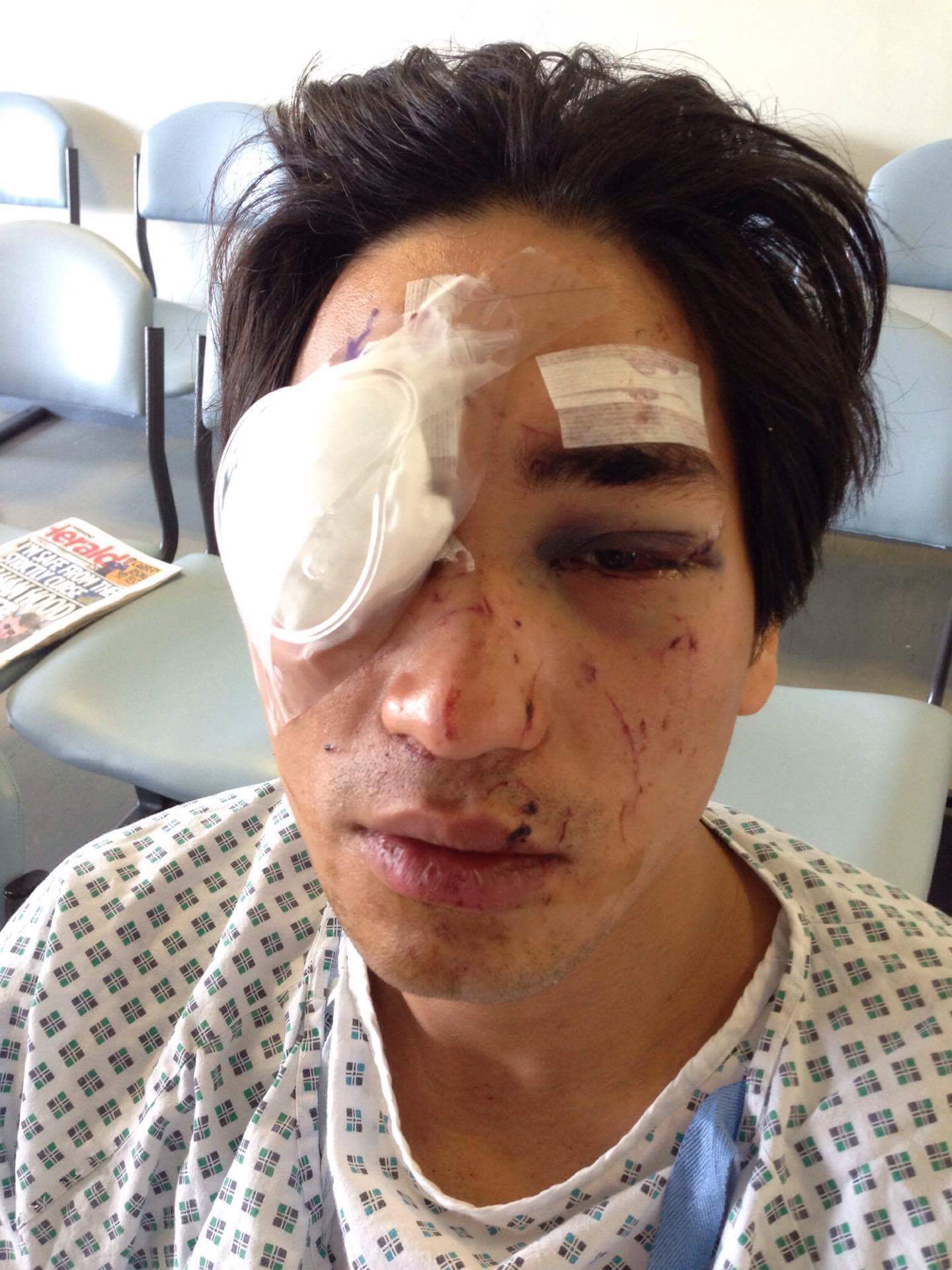
For a long time, Magic Mark defined himself by the injuries that he sustained. Mark Beltran
What followed was: 11 days in the hospital, surgery to remove his sightless eye the following year, and then another year of recovery — not just physically, but also mentally.
Mark fell into depression.
“I thought it would have been better to be actually dead, than live as a one-eyed person,” he admits. “That was a big, big hurdle to get over.”
He remembers that his medical report read “most serious, severe case of eye injury.” But it could have been worse — a piece of glass also hit his other eye, even leaving a scar. Mark was five centimeters away from being totally blind.
The thought did nothing to bring him comfort at the time.
“[Death] would have been easy, the easy way out... Fine, you got away with your life, but you’re disabled,” he says.

A newspaper headline showing the conviction of the man who caused the injury to Magic Mark. The Sun
The assault on Mark made headlines in 2016, when a GoFundMe page, created by his friends, went viral.
While a couple of news sites in the Philippines had picked it up, the incident made bigger waves in Ireland.
Apparently, the teenager who had hit Mark with a beer bottle already had a criminal record. “Twisted Luke Byrne,” as the news outlets dubbed him, was accused of robbing 11 women at knifepoint between 2014 and 2016, but got off lightly each time because he was a minor.
His attack on Mark was the final nail in the coffin for Twisted Luke, who was sentenced to nine and a half years in prison in 2018. By then, Byrne was already 18 years old.
"He won't be able to do this to another innocent person," one newspaper headline shouted.
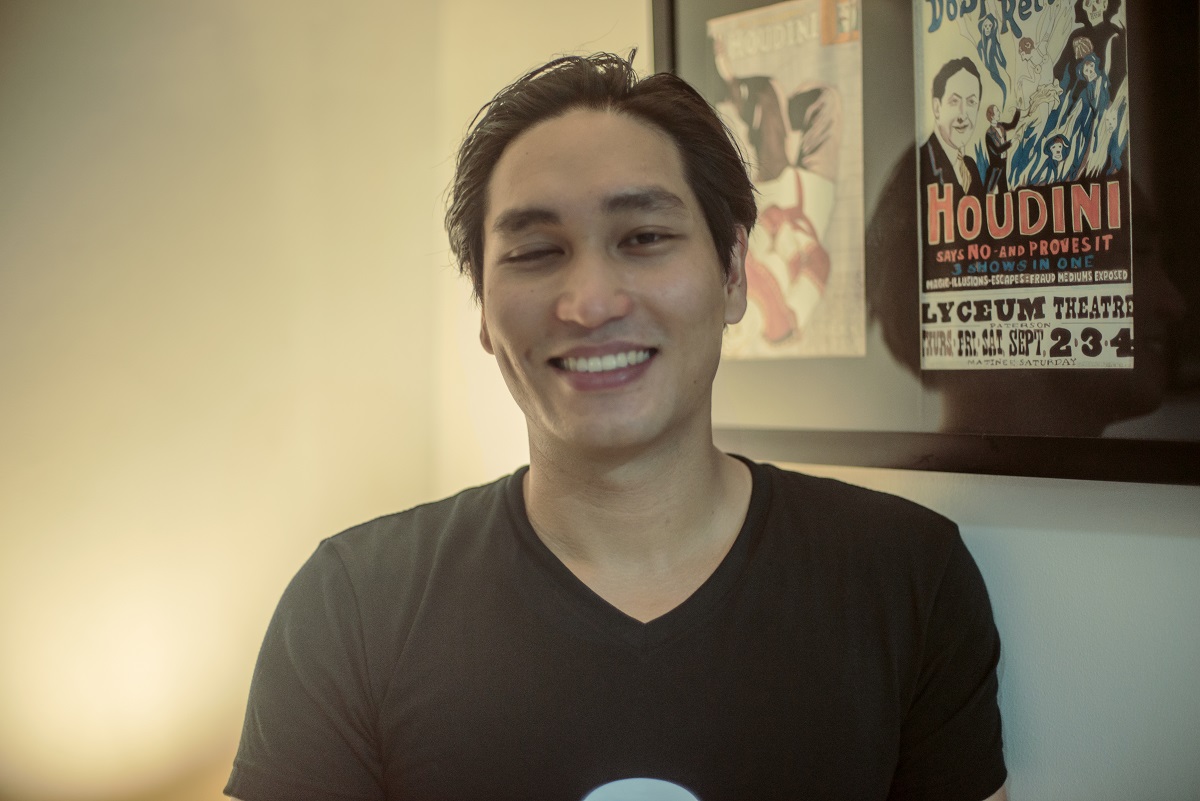
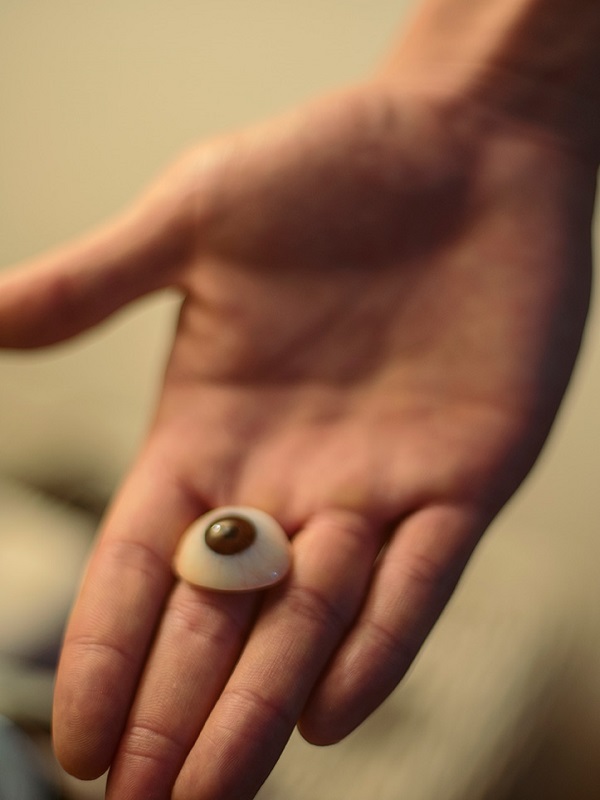
Magic Mark shows off his prosthetic eye. Jessica Bartolome
For a long time, Mark simply looked at himself the victim of a brutal assault in the streets of Dublin. His injury was all he could focus on.
His life, once full of wonder, was plunged into darkness with just a swing of a pint glass.He thought his magic was over, that he’d lost his independence. “Is it my fault?” he wondered, as a part of him blamed himself for the incident.
He couldn’t help but think that if he didn’t pursue street performing, it wouldn’t have happened — it was the only reason he was there at that place, at that time.
But then, he thought to himself, “If I had died right there, I would have died without regrets as a man who fulfilled his dreams."
What finally snapped him back to his senses was the outpouring of support from his friends and the busking community worldwide.
The message was clear: they were counting on him to get better.
“It raised up my spirits and shook me awake and told me, I can’t just pity myself and take this lying down because there are people who are supporting me. With their support I have to do better,” he says.
With some time to come to terms with his new situation, Mark started the journey to recovery.
And then he went home.

An eyepatch is now part of Mark's Costume. Mark Beltran
It took Mark three years before he was able to bring himself to stand in front of someone and open up about what happened to him.
There are things that have been taken away forever. That was a tough pill for him to swallow. He became aware of the many tiny things that he took for granted in the past.
“Depth perception and 3D vision are binocular functions. It’s gone. I can’t aim, can’t catch. Crossing the road, I don’t know how far the cars are. Just walking outside hearing kids, there’s a lot of trauma there,” he says.
Last year, against the doctor’s orders to take it easy, he flew out of the country and went straight back to busking. This time, he wore an eyepatch.
And to his own amazement, he killed it.
The experience was both exhilarating and sobering for him, because he also realized the extent of his new limitations.
“I have limitations even in the magic show...I felt like I grew five years older,” he says. “I felt so weak.”
Even worse was the lasting psychological trauma that the assault brought him.
“I got scared of crowds, and my job is all about crowds. I’m scared of teenagers, of glass breaking,” he says.
But Mark is taking baby steps, celebrating each milestone when he passes them. He has already done the hardest part, which is accepting his situation as something he could no longer change.
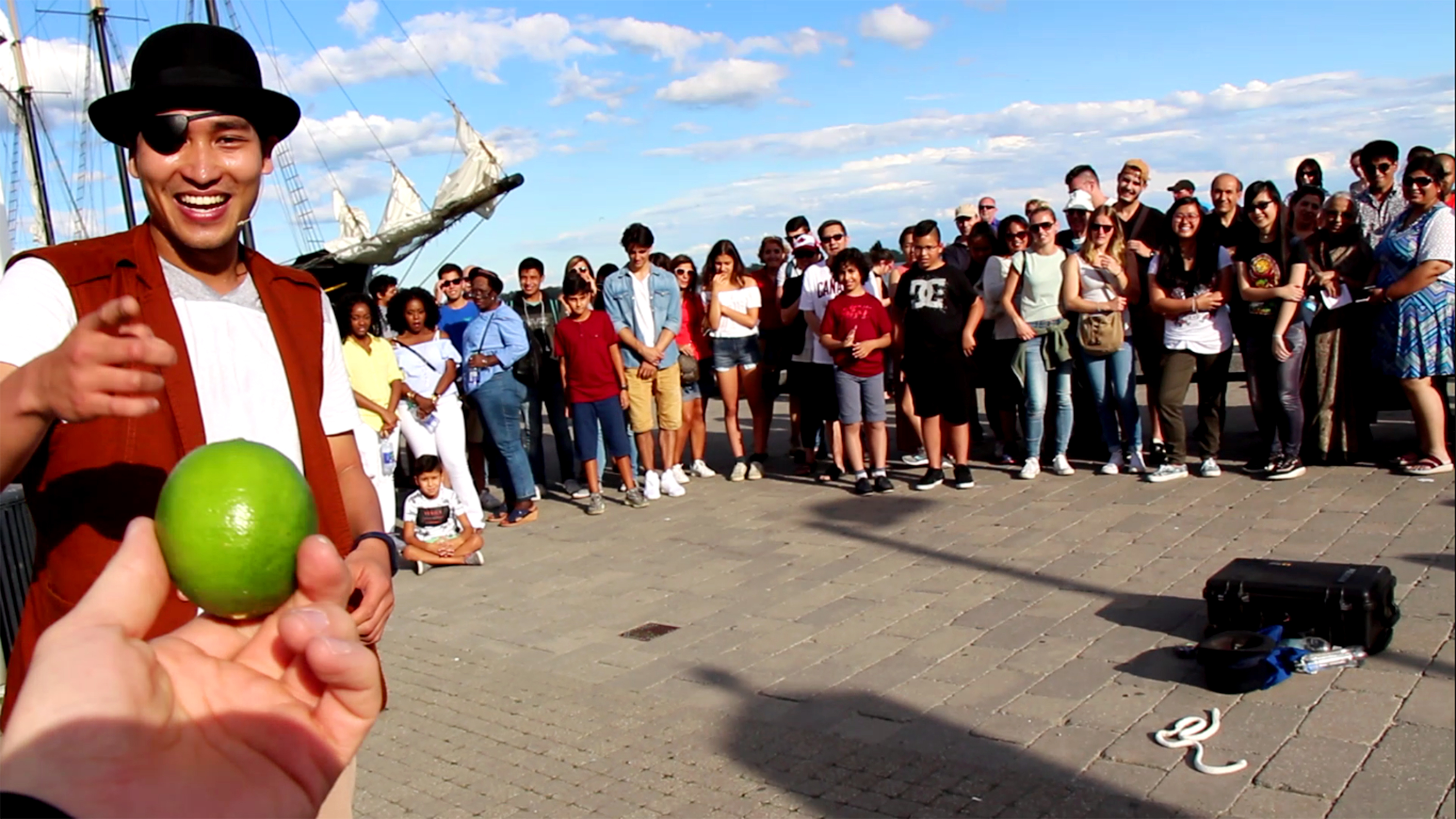
Magic Mark continues to perform on streets around the world. Mark Beltran
Now he’s taking a step further and embracing it.
“I have a collection of t-shirts of animals with eyepatches. I wear the eyepatch to my shows as well,” he says.
He spends his time in the Philippines training himself to get stronger, functioning with one eye. He is slowly attempting to do every hobby he used to do, from scuba diving to yoga to wakeboarding.
And of course, he’ll soon be going back to his true love, street magic.
“I’m doing some festivals in Europe this year. I’m also representing the country in a street magic competition in Germany,” he says.
The competition will be held in St. Wendel from August 2 to 4. Before that Mark will be in Chur, Switzerland on June 7 and 8.
In August, he'll return to Ireland, facing his trauma head on. He's come full circle, after three painful years.
“I’m still going to do street performing. I’m still going to entertain people, I’m still going to do magic on people,” he says.
There’s no stopping Magic Mark. He will put himself back in front of people and he will entertain. After all, he couldn’t help himself.